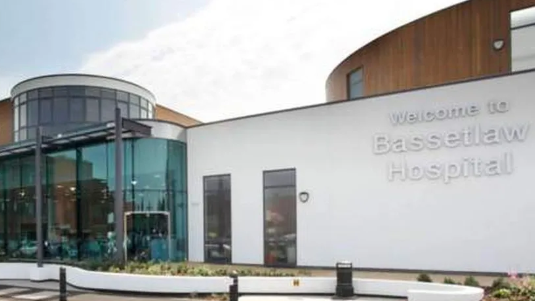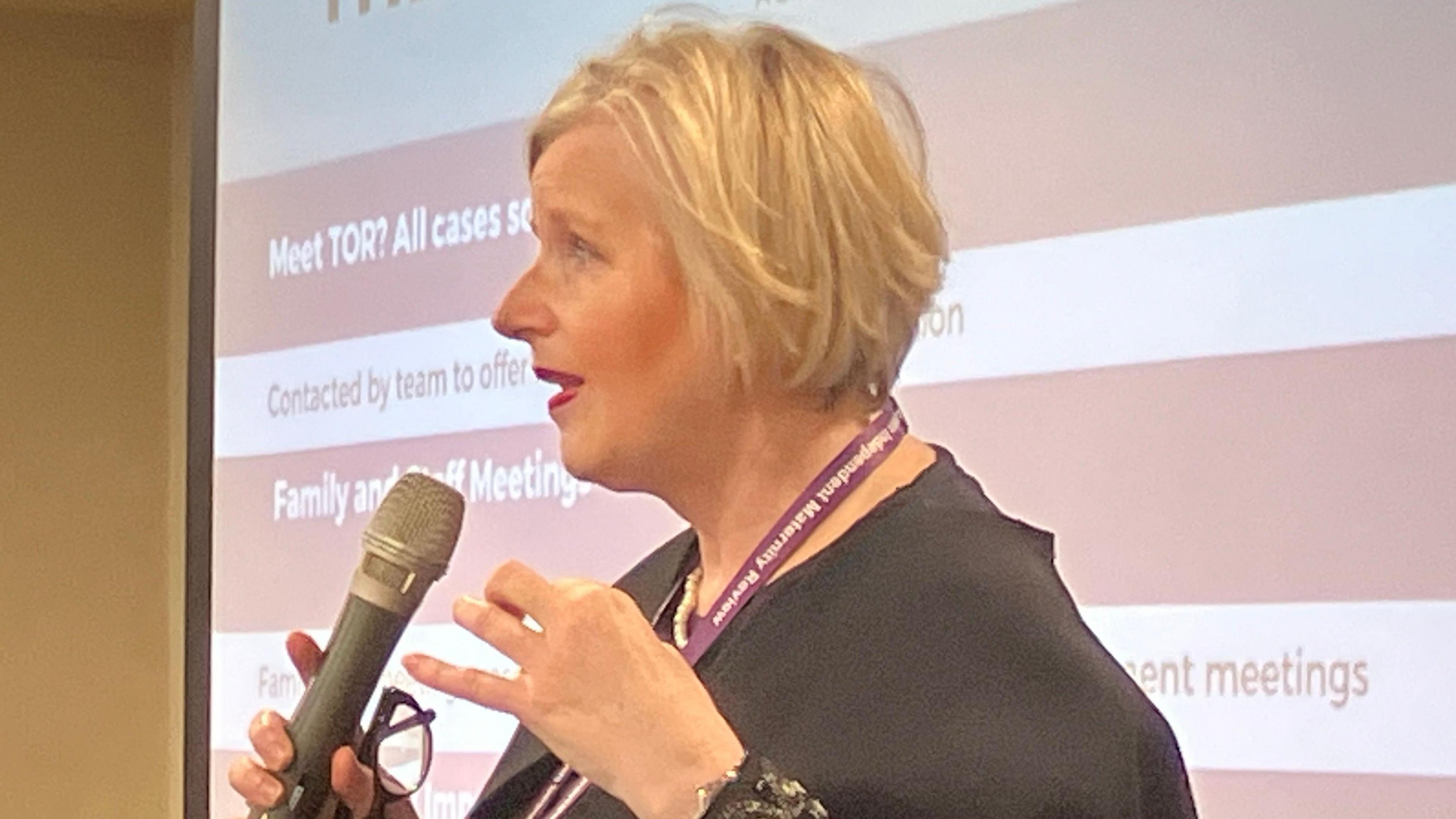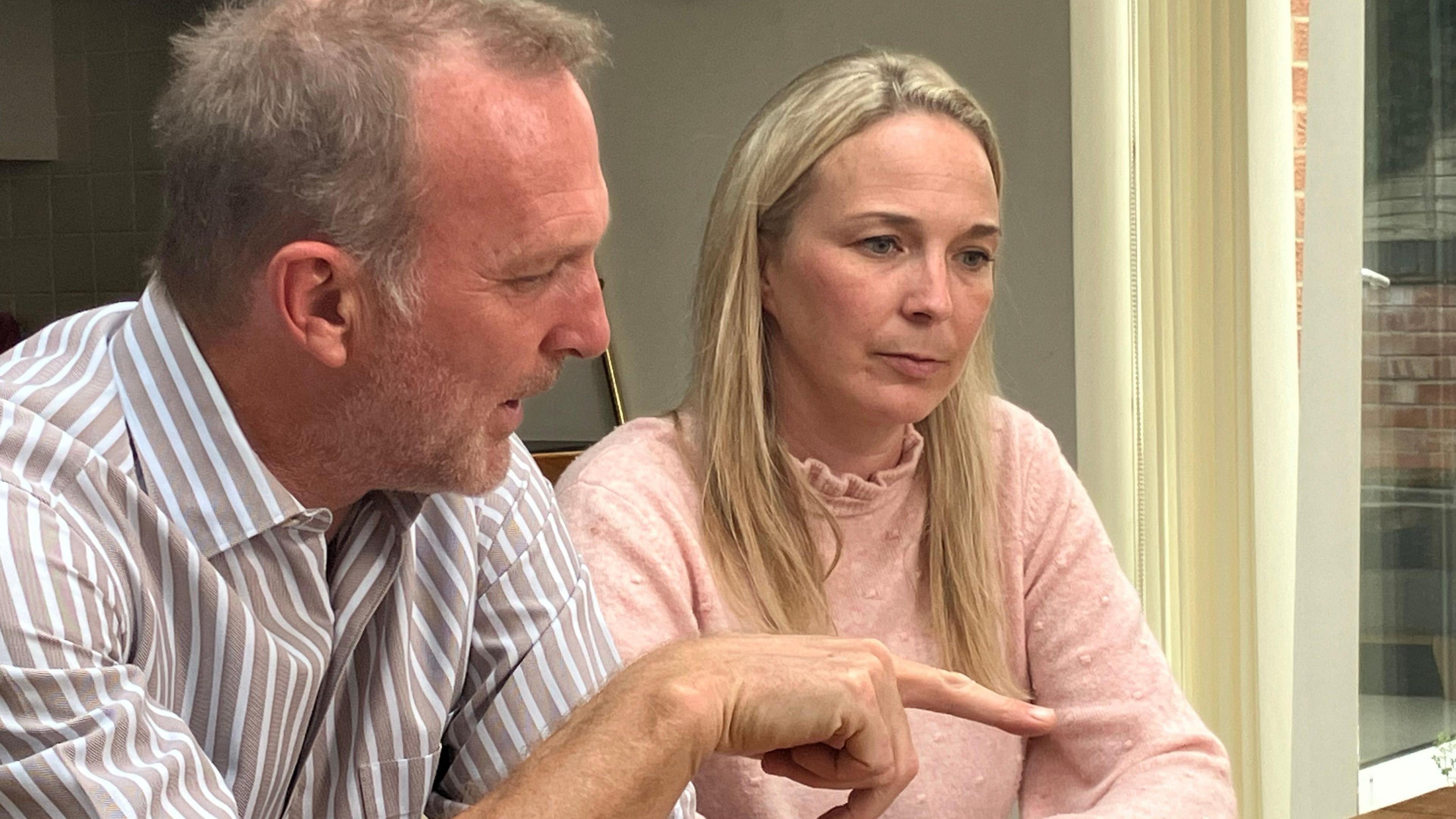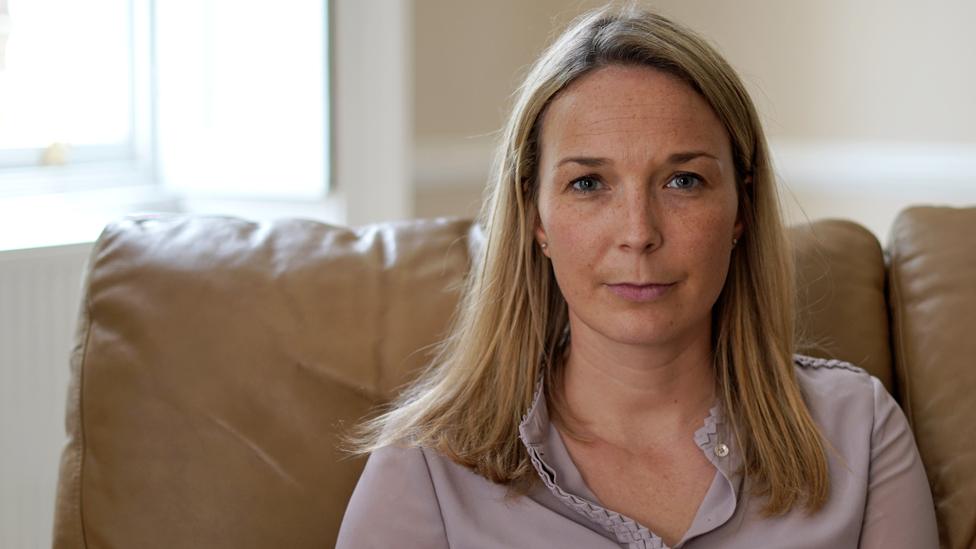Negligent care caused woman's brain damage - judge

The NHS trust said it would seek to learn from the case
- Published
A young woman's brain damage was caused by negligence by medics before she was born, a judge has said.
Elisha Woods, 25, was starved of oxygen before her birth at Bassetlaw District General Hospital in Worksop, Nottinghamshire, on 14 October, 1998.
A High Court judge has ruled she would have avoided brain injury had staff not delayed inducing her birth when her mother Julie's amniotic fluid leaked two weeks earlier.
Doncaster and Bassetlaw Teaching Hospitals NHS Foundation Trust (DBTH) has apologised to the family.
'Pale and motionless'
Ms Woods, from Nottingham, suffers from complex and extensive behavioural difficulties as result of her injuries.
Her solicitors said the ruling, by Mrs Justice Lambert, opens the way to a claim for "substantial" compensation to help pay for her continuing care needs.
The High Court heard Ms Woods was born in a "poor condition", with a very low heart rate, and her umbilical cord wrapped around her neck.
Baby Elisha was pale, motionless and was transferred to a specialist baby care unit and given emergency oxygen, the court heard.
Her mother Julie, 51, launched legal action in 2017 over concerns about her care in the two weeks before Elisha was born.
The court heard she had visited the hospital due to leaking amniotic fluid on September 28, 1998.
Cardiotocography (CTG) monitoring revealed her baby had tachycardia, an abnormally high heart rate, which persisted for more than two hours.
However, the court heard a senior doctor later wrongly interpreted the baby's heart rate as normal and discharged Mrs Woods.
Mrs Justice Lambert heard further evidence that the doctor should have repeated the CTG and conducted further tests and investigations the following day.
'Truly heartbreaking'
The court heard these tests would have likely identified signs of placental deficiency requiring intervention.
A judgement handed down last week concluded that with reasonable care, labour should have been induced on September 29, 1998, and that if that had happened, Elisha would have avoided brain injury.
After the judgement, Mrs Woods said: "This has been a stressful experience for the whole family, and I hope all remaining issues can be resolved swiftly.
"Every mother hopes that their birthing experience will be safe and that their baby will be healthy, and so it is truly heartbreaking when something does go wrong."
David Thomas, of Switalskis Solicitors, which represented the Woods family, said: “It has been a long and challenging journey for the family to finally get justice for Elisha.
“Whilst nothing will ever make up for the injuries that Elisha has sustained because of the failings in her care, this judgment paves the way for us to now bring a claim for compensation on her behalf, which will help to fund her ongoing care needs and provide her with some financial security for the rest of her life."
Dr Nick Mallaband, DBTH's acting executive medical director, said: “Whilst this particular delivery occurred in 1998, we will carefully review this judgment and consider any improvements and learning that can be applied to our present service.
"We, as a trust, accept the court's ruling and extend our sincere apologies to the claimant and her family.
"The standard of care provided fell short of what they were entitled to expect."
Follow BBC Nottingham on Facebook, external, on X, external, or on Instagram, external. Send your story ideas to eastmidsnews@bbc.co.uk, external or via WhatsApp, external on 0808 100 2210.
Related topics
- Published15 June 2024

- Published10 June 2024

- Published31 October 2023
